SocOnline Course Offerings
Not all courses are offered every session. Refer to SPIRE or CPE for scheduling.
SOCIOL 103: Social Problems
Introduction to sociology. America’s major social problems—past and present—are examined. These include crime, mental health, drug addiction, family tensions and inequalities based on race, gender, ethnicity and social class. (SB, DU)
SOCIOL 105: Self, Society, and Interpersonal Relations
Introduction to sociology and social psychology. Topics reviewed include social perception, socialization, concepts of self, personal and gender identity, expressions of emotion, social roles, group formation and power, prejudice, racism, sexism, and other topics relevant to studies in social psychology. (SB, DU)
SOCIOL 106: Race, Gender, Class, and Ethnicity
Introduction to sociology. Analysis of the consequences of membership in racial, gender, class, and ethnic groups on social, economic, and political life. (SB, DU)
SOCIOL 110: Introduction to Sociology
Introduction to sociology. Theory, methods, and approaches to the study of society. The use of several key sociological perspectives such as culture, social class, social psychology, and organizational power to analyze contemporary social issues. (SB, DU)
SOCIOL 212: Elementary Statistics
Introduction to basic statistics employed in the sociological analyses. Descriptive statistics, probability, sampling distributions, inferential statistics, tests of significance, contingency tables, measures of correlation, etc. (R2)
SOCIOL 213: Data Collection & Analysis
Introduction to research design in sociology. How social science data are obtained and analyzed. How data are used to describe and draw conclusions about social phenomena. Surveys, sampling, interviews, observation, and field methods.
Prerequisite: One of the following courses: SOCIOL 212, PSYCH 240, RES-ECON 211 or 212, STATISTC 111 or 240.
SOCIOL 222: The Family
Historical transformations in family life (relationships between husbands and wives, position and treatment of children, importance of kinship ties. The contemporary family through life course (choice of a mate, relations in marriage, parenthood, breakup of the family unit). (SB, DU)
SOCIOL 224: Social Class and Inequality
The nature of social classes in society from the viewpoint of differences in economic power, political power, and social status. Why stratification exists, its internal dynamics, and its effects on individuals, subgroups, and the society as a whole. Problems of poverty and the uses of power. (SB, DU)
SOCIOL 241: Criminology
Introduction to the study of criminology, definitions of crime, criminals and delinquents, demographics of crime and criminals, the work of the courts, law, police, and punishment in the production and administration of crime and criminals, society and crime, problems of prevention and control.
SOCIOL 242: Drugs and Society
Aspects of drugs (alcohol, cannabis, stimulants, psychedelics, depressants, opiates): historical and cross-cultural perspectives; behavioral effects; social and cultural factors affecting use; addiction (including alcoholism); political economy of drugs; drugs and social reality. (SB)
SOCIOL 248: Conformity and Deviance
This course examines the social processes of rule-making and rule-breaking, and how categories of “normal” and “deviance” change historically. We examine different theories of conformity and deviance, using topics such as sexuality and politics.
Prerequisite: One 100-level SOCIOL course.
SOCIOL 287: Sexuality and Society
The many ways in which social factors shape sexuality. Focus on cultural diversity, including such factors as race/ethnicity, gender, and sexual identity in organizing sexuality in both individuals and social groups. (SB, U)
Prerequisite: 100-level SOCIOL course.
SOCIOL 297W: Introduction to Social Welfare
Critical introduction to various conceptions of “welfare” across contexts, exploring notions of deservingness and entitlement, various methods of provision, changes in programs over time, as well as the ways that welfare programs create, reproduce, and mitigate enduring inequalities. Each course unit will include historical and contemporary issues related to the topic to provide students with a sense of the origin of welfare programs and provision methods, in addition to gaining a crystallized understanding of the current welfare state in the U.S.
SOCIOL 302: Foundations of Sociological Theory
This is a course designed to introduce the key theories at use in sociology and other related academic disciplines, with close attention paid to inequality, solidarity, individualism, bureaucracy and capitalism. The goal is to provide a theoretical web and collaborative learning experiences wherein students will be able to situate social theories and debates in relation to one another, in relation to the theories/perspectives of other disciplines, and also in relation to important issues of the day. This course meets the Integrative Experience requirement for BA-Sociol majors through exercises and activities to facilitate reflection on, and integration of, prior General Education and Sociology courses.
SOCIOL 323: Sociology of Law
This course has two main objectives: 1) to provide a theoretical and empirical foundation for the sociological study of law, legal institutions, and legal actors and 2) to enhance critical thinking about the role of law and legal institutions in social life.
Prerequisite: 100- or 200-level SOCIOL course.
SOCIOL 328: Introduction to Social Work
An introduction to the major subfields of the profession, the populations social workers serve, the types of interventions they use, the theories behind those interventions, and the obstacles to success.
SOCIOL 353: Sociology of Medicine
Literature on health and illness from three sociological perspectives: 1) epidemiological: focus on social and psychological factors as causes of disease; 2) illness-behavior perspectives: focus on variation between persons and groups in their evaluation and response to pain and symptoms; and 3) organizational: emphasis on problems in organization and delivery of medical services.
Prerequisite: 100- or 200-level SOCIOL course.
SOCIOL 364: Sociology of Mental Health
Introduction to the sociology of mental illness, definitions and descriptions of mental illness, social and cultural causes for mental illness, family and public reactions and the problems of measuring mental illness and methods for its cure.
Prerequisite: 100- or 200-level SOCIOL course.
SOCIOL 391M: Serial and Mass Murder
This course will present a broad, empirical study of serial and mass murder as relatively rare and dramatic, but quite different, forms of homicide. Emphasis will be placed on better understanding both the offenders and victims involved. Cross-national comparisons will be made and the scholarly research explored, with a view toward contrasting this data and scholarship with images and information commonly presented in popular culture and in the mass media.
SOCIOL 392J: Race and Policing
Focuses on key aspects of the often controversial relationship between race and police behavior in the United States. Our specific goals will be to provide students a detailed understanding of a number of these major controversies, and of the empirical evidence surrounding them. We will focus particularly on evidence involving racial profiling in drug enforcement, traffic stops, police use of force, searches and arrest decisions. While students are expected to become knowledgeable about the variety of ways empirical evidence is used to assess these specific issues in detail and depth, they are also expected to become critical thinkers about the broader issues of bias in policing, by both organizations as well as by individual officers.
SOCIOL 394F: Crime and Forensics
An overview of the uses of forensic science in criminal prosecution. For upper level, non-science majors, with priority given to criminal justice students. Will focus on a core of four well-known contemporary murder cases: the prosecutions of O.J. Simpson, Pamela Smart, the Menendez brothers, and Suzanne D’Amour. Key forensic evidence used in each case will be identified and discussed, along with the major social issues surrounding the case, including domestic violence, child abuse, sexual assault, and race and community-police relations. A basic understanding of chemistry, biology, and physics may prove helpful, but is not required.
SOCIOL 394S: White Collar Crime
The nature, extent, and typology of white collar crime. Its distinction from street crimes and an assessment of causation, investigation, prosecution, defense, and sentencing alternatives will be undertaken. The special issues of women in white collar crime, the infiltration of legitimate business by organized crime, and the future of white collar crime will be examined.
SOCIOL 395K: Domestic Violence
Prior to the 1970s, domestic violence in America was widely viewed as a private matter in which public intervention was inappropriate except under the most extreme circumstances. Over the past several decades, however, domestic violence has been increasingly perceived and responded to by the public as a criminal matter. Take a detailed look at patterns and trends in domestic violence in contemporary America, explore theoretical perspectives about its causes, and examine the domestic violence reform movement, paying special attention to research that tries to assess the actual effectiveness of criminal justice reforms in reducing domestic violence.
SOCIOL 397D: Delinquency and Juvenile Justice
This course is designed to provide an in-depth perspective and understanding of the juvenile justice system and juvenile delinquency. The impact the system has on juveniles and on society will be examined with an emphasis on related issues (gangs, drugs and mobility). The historical and philosophical basis for the juvenile justice system will be examined.

